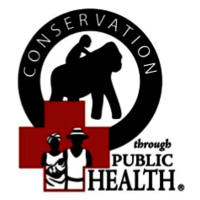Conservation Through Public Health (CTPH) promotes biodiversity conservation by enabling people, wildlife and livestock to coexist through improving their health and livelihoods in and around Africa's protected areas. CTPH envisions people, wildlife and livestock living in balance, health and harmony with local communities acting as stewards of their environment. CTPH has three integrated programs: wildlife health and conservation, community health and alternative livelihoods. These integrated programs are implemented through service delivery, education and behavior change communication, research, advocacy, social enterprises and information, communication and technology. Some of the poorest communities live around some of the World's most fragile and ecologically important ecosystems. In order to protect the wildlife - in CTPH's case, primarily Gorillas - and the environment on which it depends, CTPH recognizes the vital importance of improving the health and raising the quality of life of community members and their livestock as well as the Gorillas. Without this comprehensive approach, the entire ecosystem suffers - people continue to depend on poached resources from the protected wildlife areas, damaging them in the process, and animal health suffers as zoonotic diseases are incubated within human populations and spread to Gorilla groups (and vice versa).
CTPH champions a "One Health" approach, based on the Population, Health and Environment (PHE) principles that address human, animal and ecosystem health simultaneously. CTPH's work primarily focuses on critically endangered gorillas at Bwindi Impenetrable National Park and other protected areas where gorillas naturally occur. We also train other organisations to implement our One Health model in savannah and mountain ecosystems in Uganda and other countries through advocacy.
CTPH also has a number of social enterprises which support its work, including Gorilla Conservation Coffee. CTPH pays an above market price to coffee farmers around Bwindi Impenetrable Forest and profits from sale of the coffee are filtered back into the protection of some of the World's last remaining Gorillas.
CTPH also has a number of social enterprises which support its work, including Gorilla Conservation Coffee. CTPH pays an above market price to coffee farmers around Bwindi Impenetrable Forest and profits from sale of the coffee are filtered back into the protection of some of the World's last remaining Gorillas.






